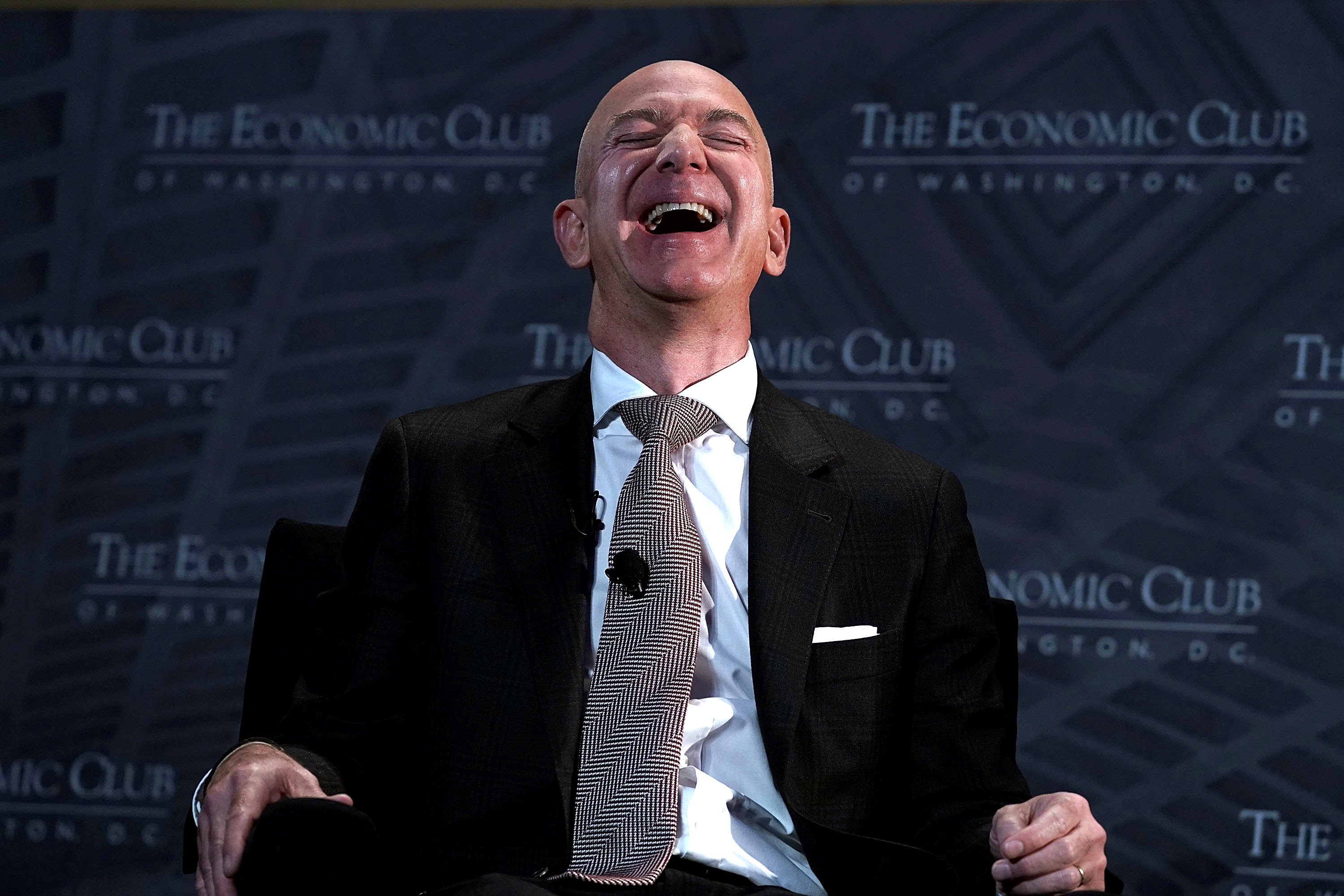Should the U.S. start taxing wealth?
What to do about the country's mega-rich?

A free daily email with the biggest news stories of the day – and the best features from TheWeek.com
You are now subscribed
Your newsletter sign-up was successful
The smartest insight and analysis, from all perspectives, rounded up from around the web:
"Paying taxes is an expression of citizenship," said Maureen Dowd at The New York Times. So what gives Jeff Bezos and his billionaire brethren the right to think they can keep "rolling around in gobs of dough and displays of obscene consumption" without paying their fair share? Last week, ProPublica "cracked open the vault on America's biggest tax grifters, revealing how the Midas men dip, dodge, and duck, paying pennies on the dollar, if that, while we suckers have to pony up." Amazon founder Bezos, for instance, paid $0 in federal income taxes in 2007 and 2011. "Everyone was outraged" when former President Donald Trump "refused to show his tax returns," while it turns out "real billionaires were skating." What they did may not be against the law, but it isn't right.
It's why we need an aggressive tax overhaul, said Jennifer Rubin at The Washington Post. The progressive tax code is supposed to make the rich pay more. Instead, "we've created a paradise for billionaires without improving the lives of the rest of Americans." What's especially "insidious is how much of the wealth has been founded on public services," said Michael Hiltzik at the Los Angeles Times. Elon Musk, for instance, became the world's second-richest man thanks to Tesla, which has "been assisted by taxpayer-funded incentives" for customers and $2.5 billion in tax credits. It's time to take seriously Sen. Elizabeth Warren's proposal of "a 2 percent tax on the net value of stocks, bonds, and anything else of value exceeding a total of $50 million."
The Week
Escape your echo chamber. Get the facts behind the news, plus analysis from multiple perspectives.

Sign up for The Week's Free Newsletters
From our morning news briefing to a weekly Good News Newsletter, get the best of The Week delivered directly to your inbox.
From our morning news briefing to a weekly Good News Newsletter, get the best of The Week delivered directly to your inbox.
Yes, billionaires should follow the same rules as ordinary Americans — and ordinary Americans don't pay income taxes when the value of the home "jumps in a hot market," said Megan McArdle at The Washington Post. Progressives say they're all about fairness. But a tax on unrealized gains "wouldn't feel very fair if it applied to you and me." These numbers were almost surely leaked by someone intending to "weaponize the IRS for political purposes," said Jonah Goldberg at The Dispatch. They reveal no scandal. In America, "we do not tax wealth." The tax code was written that way to encourage long-term investment, and to promote other policies that legislators liked. Billionaires are using it just as it was intended.
Actually, many legislators do not like the current approach, said Steve Wamhoff at Fortune. Last year, Sen. Ron Wyden (D.-Ore.) proposed to "change the rules to include unrealized capital gains as income for tax purposes each year." By one analysis, having to pay taxes every year would have cut Warren Buffett's wealth by 85 percent. The tax code includes an "even more problematic tax break": These untaxed gains are exempted from taxes "forever when individuals die" without selling their assets. The Biden administration has already proposed fixing this, and that's the least that should be done. We can go a lot further in limiting the upper extremes of riches, said Christine Emba at The Washington Post. Maybe a better approach to wealth would be "focused less on what is allowed and more on what is enough."
This article was first published in the latest issue of The Week magazine. If you want to read more like it, you can try six risk-free issues of the magazine here.
A free daily email with the biggest news stories of the day – and the best features from TheWeek.com
-
 Political cartoons for February 21
Political cartoons for February 21Cartoons Saturday’s political cartoons include consequences, secrets, and more
-
 Crisis in Cuba: a ‘golden opportunity’ for Washington?
Crisis in Cuba: a ‘golden opportunity’ for Washington?Talking Point The Trump administration is applying the pressure, and with Latin America swinging to the right, Havana is becoming more ‘politically isolated’
-
 5 thoroughly redacted cartoons about Pam Bondi protecting predators
5 thoroughly redacted cartoons about Pam Bondi protecting predatorsCartoons Artists take on the real victim, types of protection, and more